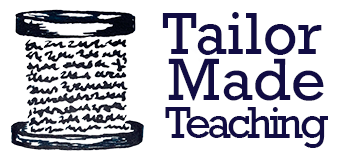Poems for Business Classes
One common question asked throughout Adrian Underhill’s course was how could we adapt the activities for our more serious courses, the ones whose students tend to have very particular and definite aims in mind, such as Business English courses?
Obviously, the techniques Adrian teaches can be applied to any piece of language (an excerpt from a coursebook would do, a presentation, perhaps) but would it be possible, we wondered, to create something like a poetry festival to work towards, showcasing texts the students develop throughout the course? Would that be useful for the students? Or, more pertinently, would it be seen to be useful?
I started researching poetry and Business and was struck by how many books, articles and blog posts there are: favourite poems of industry leaders; business leaders who write poetry; business studies courses discussing poetry. It shouldn’t be a surprise. Poetry is language used to move, to inspire, to connect – the same rhetorical devices which are used to promote, negotiate, convince.
U.S. businessman and owner of Newsweek magazine, Sidney Harman, told the New York Times, ‘I tell my senior staff to get me poets as managers. Poets are our original systems thinkers. They look at our most complex environments and they reduce the complexity to something they begin to understand.’
Poetry can stimulate creative thinking, strategic thinking, decision-making, analytical ability, innovation and self-reflection.
Business guru and founder of Focus Media Holding claims poetry is ‘the secret to his success.’

Apple CEO Tim Cook said, ‘I’m not worried about artificial intelligence giving computers the ability to think like humans…I’m more concerned about people thinking like computers.’ What better way to re-connect with our humanity than reading poetry?
Which poems to choose?
You could work on any poem in class as an example, a short poem that means something to you. The poem you choose will, to a certain extent, set the tone. Adrian Underhill’s choice of William Carlos Williams’ ‘This is just to say…’ was a really nice choice: it’s accessible, it’s light, and it’s the perfect length.
Students may take a bit of convincing, especially those who have a definite idea of what they want to work on. You could show them some clips of presentations (TED talks, perhaps), or famous, or motivational, speeches, or advertising slogans. Play Richard Branson’s reading of his own poem (if you can bear it), ask what words they have been inspired by, what language has moved or convinced them. What impact does it have if you read those same words in a flat monotone, no expression, no pauses? How do they want to be perceived in English?
I’d love to hear what works for you.
Sources: https://www.poetrychangeslives.com/creativity-is-in-demand-by-business/; https://businessinrhyme.com/2015/07/19/how-poetry-can-stimulates-creativity/; http://archive.sciendo.com/CRIS/cris.2014.2014.issue-2/cris-2014-0010/cris-2014-0010.pdf; https://www.fastcompany.com/90532707/why-ceos-need-to-read-poetry-yes-poetry-to-lead-in-the-post-covid-world; https://shanghai.nyu.edu/news/when-poetry-meets-business




Leave a Reply
Want to join the discussion?Feel free to contribute!